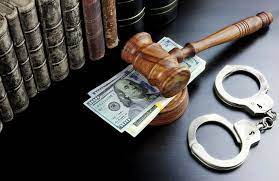A bail bondsman is a person who arranges for the release of an individual on bail. He or she is also known as a bail bond agent or dealer. They act as a surety, pledging money or property to pay the individual’s bail. If the person is not able to pay the bail amount in full, the bail bondsman can post a bond on their behalf.
As a bail bondsman, you’ll be required to provide financial information to the court, and submit periodic financial reports to the licensing agency. Depending on the state, the requirements will vary. However, in general, you’ll need patience, a desire to help others, and good instincts. If you have these characteristics, you can be a successful bail bondsman. You can get additional information at bondsman near me
 A bail bondsman’s lifestyle isn’t glamorous. He or she won’t be living on a cruise ship or doing daring stunts, but the job does require a lot of discipline. A bail bondsman will typically travel from his office to the court, not sit behind a desk all day.
A bail bondsman’s lifestyle isn’t glamorous. He or she won’t be living on a cruise ship or doing daring stunts, but the job does require a lot of discipline. A bail bondsman will typically travel from his office to the court, not sit behind a desk all day.
A bail bondsman usually charges between 10 and 13 percent of the total bail amount. The fee is nonrefundable. However, once the defendant fails to appear in court, the bail bondsman will use the collateral to pay the court. In some cases, the bondsman will send a bounty hunter to recover the bond.
While there are many advantages to using a bail bondsman, it’s important to find a professional who can help you understand the process. You should look for someone who is experienced and easy to work with. A bail bondsman should be able to help relieve the stress of an already stressful situation. When hiring a bail bondsman, make sure you gather information about the person you’re bonding, including the location of the detention, the full name of the defendant and their booking number.
Many states have caps on the amount of money that can be charged by a bail bondsman. In some states, the fees are as high as 10 percent. Many low-income individuals cannot afford to pay these fees. However, some states have laws that regulate these fees and have lowered them. This makes the bail bondsman a more equitable option for those who can’t afford to pay them outright.
A bail bondsman’s business has some unique characteristics that make it a high-risk business. For starters, it carries a greater risk of fraud, higher chargeback rates, and clients who are unwilling to pay. This can put a strain on the application process. The high-risk status of a bail bondsman means that many banks will be reluctant to work with it. This makes it essential to have a merchant account with a low financial risk.
A bail bondsman provides a valuable service to the community. Many defendants cannot afford bail amounts set by judges. When this happens, a bail bondsman steps in to secure the defendant’s release and allow them to get ready for their court date.
